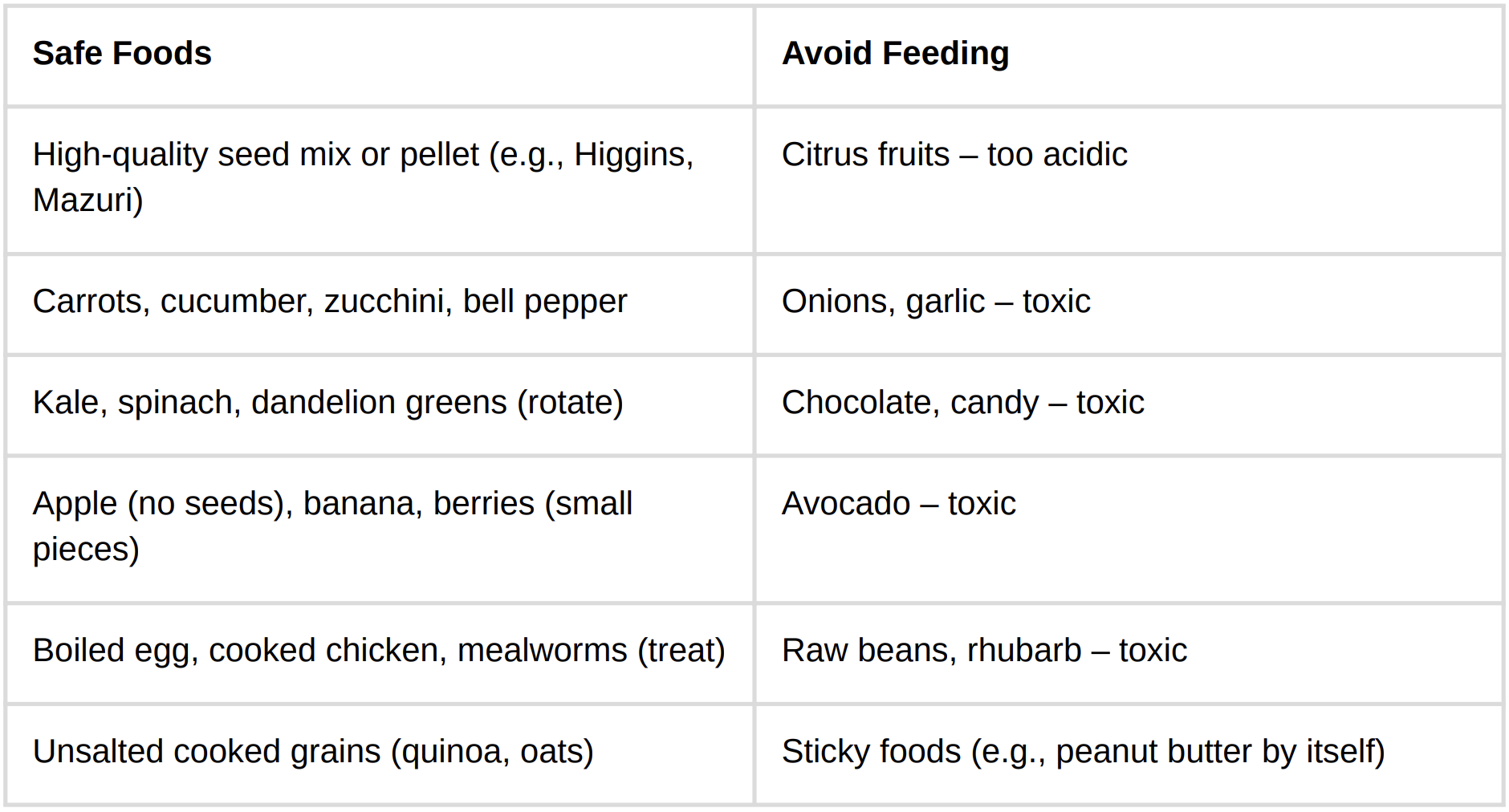Syrian Hamster Care Sheet
Overview
Syrian hamsters (also known as golden hamsters) are solitary, nocturnal rodents that make engaging pets when provided with proper housing, enrichment, and nutrition. Unlike dwarf hamsters, Syrians must be housed alone, as they are highly territorial and can fight if kept with others. Known for their gentle nature and variety of coat types and colors, they are a great choice for responsible older children and adults alike. Hamsters are small but complex animals with specific needs around space, bedding, diet, and daily activity. With the right care, Syrian hamsters can live a happy and healthy life in captivity.
Species averages:
Habitat Parameters
Housing recommendations
Syrian hamsters require large, escape-proof enclosures with solid flooring and excellent ventilation. Wire cages, DIY bin cages, and large glass tanks with screen lids are all acceptable if they meet space and enrichment needs. Avoid vertical cages—hamsters are not good climbers and are prone to falls.
Provide at least 6 inches of safe, diggable bedding (paper-based or aspen—avoid cedar/pine). Include a properly sized solid wheel (minimum 10–12 inches), multiple hides, chew toys, and a sand bath for grooming. Use natural materials and tubes to create a stimulating layout. Spot clean daily and deep-clean the cage every 2–4 weeks.
Avoid strong scents or chemicals, which can stress or harm your hamster. Important: Syrian hamsters are solitary animals and should never be housed with another hamster
Feeding
Syrian hamsters are omnivores and need a varied diet to stay healthy. A quality commercial pellet or seed mix should be supplemented with fresh vegetables and occasional protein sources.
Supplementation
Most hamsters receive all necessary nutrients from a balanced seed mix and fresh foods. Supplementation is generally not required but can be considered in some situations
Special considerations
Solitary nature
Syrian hamsters are highly territorial and must always be housed alone. Introducing another hamster , even littermates, often results in severe fighting or death.
Handling and socialization
Handle your hamster gently and frequently to build trust. Let them come to your hand rather than grabbing. Avoid waking them suddenly, especially during the day, as this can lead to biting. Begin with short handling sessions at night when they’re naturally active.
Exercise and enrichment
Daily exercise is crucial. In addition to a solid wheel (minimum 10–12”), consider supervised free-roam time in a hamster-proofed space or playpen. Provide tunnels, hides, dig boxes, and rotating toys to reduce boredom.
Hibernation risk
In temperatures below 60°F , Syrian hamsters may enter a dangerous state of torpor . Keep their environment consistently warm and avoid exposure to drafts or cold surfaces.
Common Health Concerns in Syrian Hamsters
Below are some of the most common medical issues seen in Syrian hamsters. Subtle changes in behavior , appetite, or posture can be early warning signs.
Wet Tail (Proliferative Ileitis)
Signs: Diarrhea, hunched posture, lethargy
Causes: Bacterial infection—often stress-induced and can be fatal if untreated
Obesity
Signs: Difficulty moving, excessive fat storage
Causes: Lack of exercise, high-fat diet
Overgrown Teeth
Signs: Drooling, inability to eat, weight loss
Causes: Lack of chew toys or gnawing opportunities
Respiratory Infection
Signs: Sneezing, wheezing, crusty nose or eyes
Causes: Drafts, dusty bedding, poor ventilation
Skin Mites or Irritation
Signs: Excessive scratching, patchy fur loss, scabs
Causes: Parasites, allergies, or unclean habitat
These are all concerns we can help with via telemedicine. If you suspect your hamster may be showing any
of the signs above, book an appointment at swiftailvet.com for expert exotic pet care from the comfort of
your home.
Disclaimer
At Swiftail Vet, we strive to provide accurate, up-to-date information based on current best practices in exotic pet care. However, husbandry standards can evolve quickly. If you notice any outdated or incorrect information on this care sheet, please let us know by emailing info@swiftailvet.com or using the contact form on our website at swiftailvet.com. Your feedback helps us ensure the highest quality resources for pet owners and their companions.
Written by: Wintergreen Vet Services
March, 18, 2025






